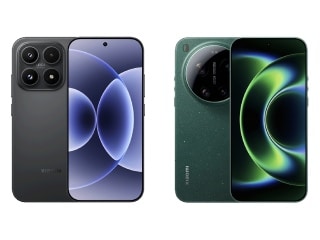- Home
- Science
- Science News
- Artificial Intelligence Has a Lot to Learn From Sea Slug, Study Suggests
Artificial Intelligence Has a Lot to Learn From Sea Slug, Study Suggests
By studying sea slugs, researchers have discovered the hallmarks of intelligence that are fundamental to an organism’s survival.

Photo Credit: Unsplash/ Kris-Mikael Krister
Sea Slugs show signs of intelligence that can be used to augment AI
A new discovery in the field of artificial intelligence (AI) takes inspiration from one of the simplest marine creatures in the world — the sea slug. AI is in a constant state of growth, trying to improve and be more efficient. A simple sea slug has helped researchers break new grounds. Researchers from Purdue University, Rutgers University, University of Georgia, and Argonne National Laboratory published a study in the Proceedings of the National Academy of Sciences journal this week. The study examines some of the most fundamental building blocks of the sea slug's intelligence. This has helped researchers to take steps towards making AI-driven hardware more efficient.
Researchers suggested that such hardware could be efficient and reliable for applications across areas such as self-driving cars, surgical robots, and social media algorithms.
Shriram Ramanathan, a Purdue professor of materials engineering, told EurekAlert, “Through studying sea slugs, neuroscientists discovered the hallmarks of intelligence that are fundamental to any organism's survival.”
In sea slugs, there are two signs of intelligence — habituation and sensitisation. Habituation means normalising response to a stimulus over time. Sensitisation, however, is quite the opposite. It is the part of intelligence by which an organism strongly reacts to a new stimulus.
AI has often struggled to keep up with these apparently opposite sides of intelligence. Among researchers studying brain-inspired computing, it is known as the “stability-plasticity dilemma.” AI, as we know it today, cannot store new information without first rewriting old data. But habituation would allow AI to not store unnecessary data while sensitisation would help retain new information. This would increase stability while also enabling plasticity.
Researchers are relying on nickel oxide to mimic this process of habituation and sensitisation. Nickel oxide is known as a quantum material as its properties cannot be explained by the laws of classical physics.
This quantum material shows a similar intelligent response to stimuli as does a sea slug. A sea slug shows habituation when it barely withdraws its gill when tapped on the siphon. But it shows sensitisation when it dramatically withdraws its gill in response to an electric shock to its tail.
Nickel oxide mimics this by showing differences in its electrical resistance. Researchers saw that repeated exposures of the material to hydrogen gas decreases its change in electrical resistance over time. But when nickel oxide is introduced to a new stimulus like ozone, the change in its electrical resistance greatly increases.
Researchers believe that nickel oxide could enable the building of AI hardware. Such hardware, in combination with a suitable software, could make AI more efficient.
Get your daily dose of tech news, reviews, and insights, in under 80 characters on Gadgets 360 Turbo. Connect with fellow tech lovers on our Forum. Follow us on X, Facebook, WhatsApp, Threads and Google News for instant updates. Catch all the action on our YouTube channel.
Related Stories
- Samsung Galaxy Unpacked 2026
- iPhone 17 Pro Max
- ChatGPT
- iOS 26
- Laptop Under 50000
- Smartwatch Under 10000
- Apple Vision Pro
- Oneplus 12
- OnePlus Nord CE 3 Lite 5G
- iPhone 13
- Xiaomi 14 Pro
- Oppo Find N3
- Tecno Spark Go (2023)
- Realme V30
- Best Phones Under 25000
- Samsung Galaxy S24 Series
- Cryptocurrency
- iQoo 12
- Samsung Galaxy S24 Ultra
- Giottus
- Samsung Galaxy Z Flip 5
- Apple 'Scary Fast'
- Housefull 5
- GoPro Hero 12 Black Review
- Invincible Season 2
- JioGlass
- HD Ready TV
- Latest Mobile Phones
- Compare Phones
- Realme P4 Lite
- Vivo V70
- Vivo V70 Elite
- Google Pixel 10a
- Tecno Camon 50
- Tecno Camon 50 Pro
- Lava Bold N2
- Vivo V60 Lite 4G
- Asus Vivobook 16 (M1605NAQ)
- Asus Vivobook 15 (2026)
- Infinix Xpad 30E
- Brave Ark 2-in-1
- Amazfit T-Rex Ultra 2
- boAt Chrome Iris
- Xiaomi QLED TV X Pro 75
- Haier H5E Series
- Asus ROG Ally
- Nintendo Switch Lite
- Haier 1.6 Ton 5 Star Inverter Split AC (HSU19G-MZAID5BN-INV)
- Haier 1.6 Ton 5 Star Inverter Split AC (HSU19G-MZAIM5BN-INV)







![[Partner Content] OPPO Reno15 Series: AI Portrait Camera, Popout and First Compact Reno](https://www.gadgets360.com/static/mobile/images/spacer.png)









